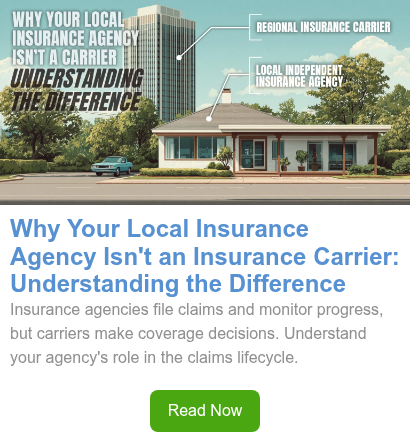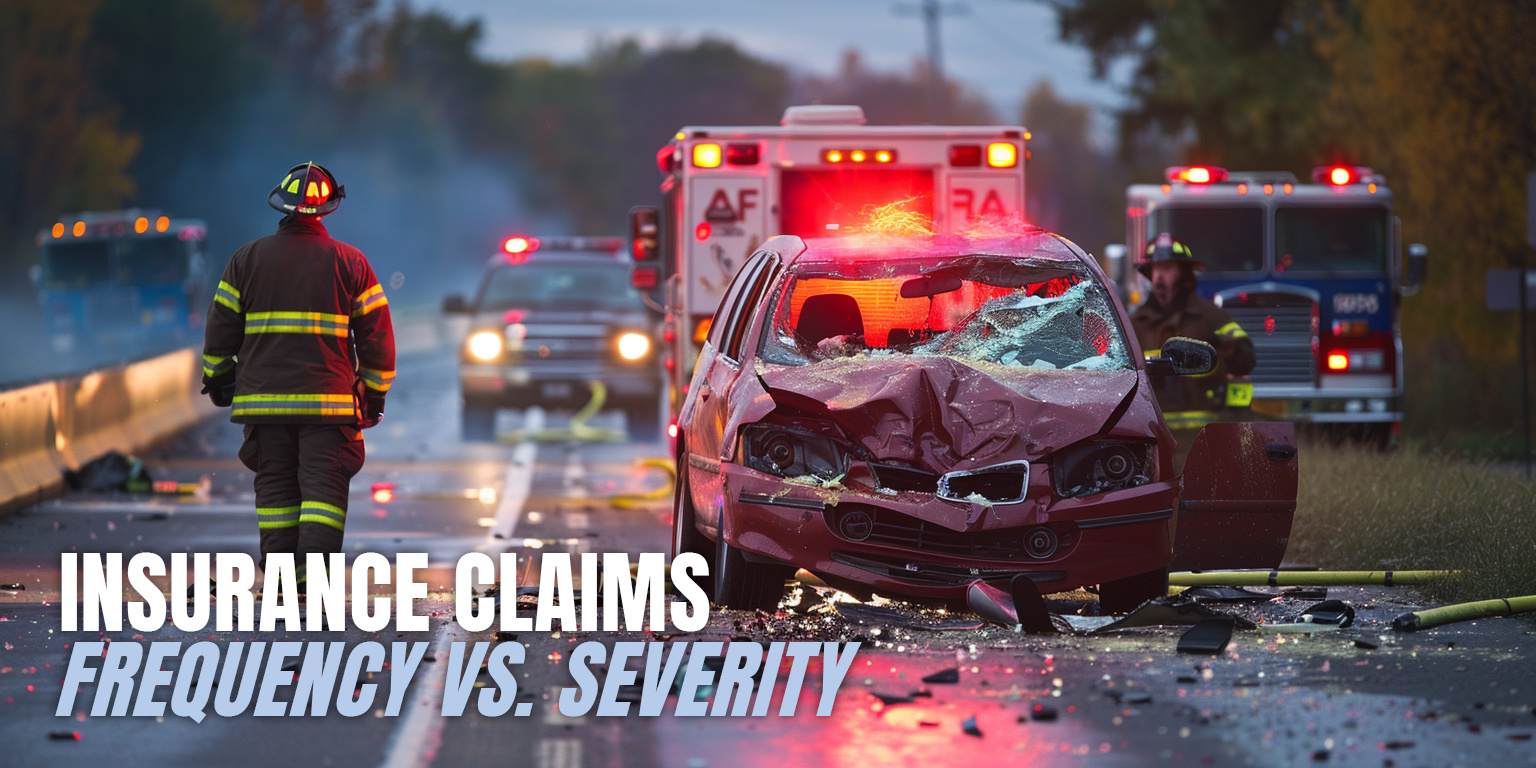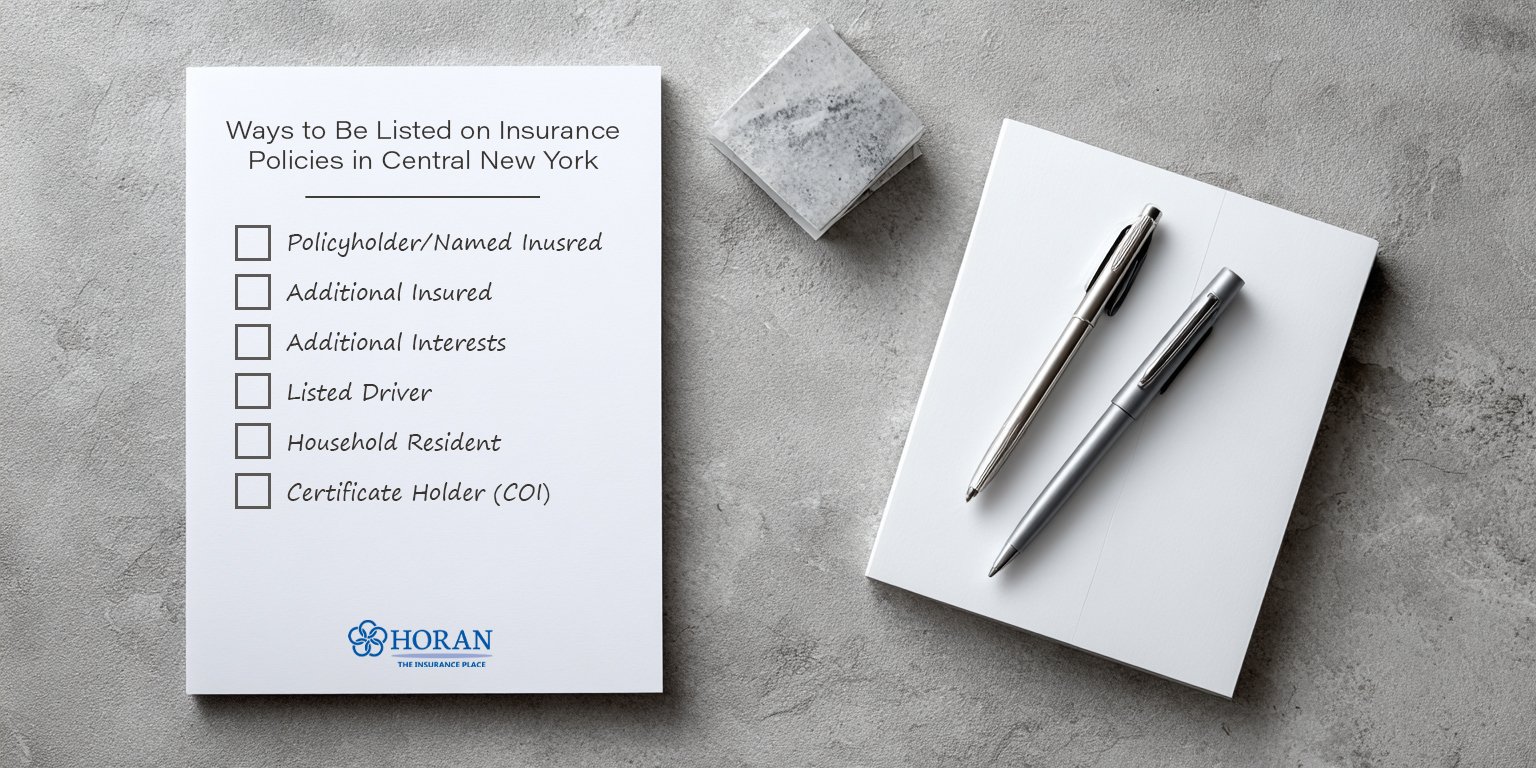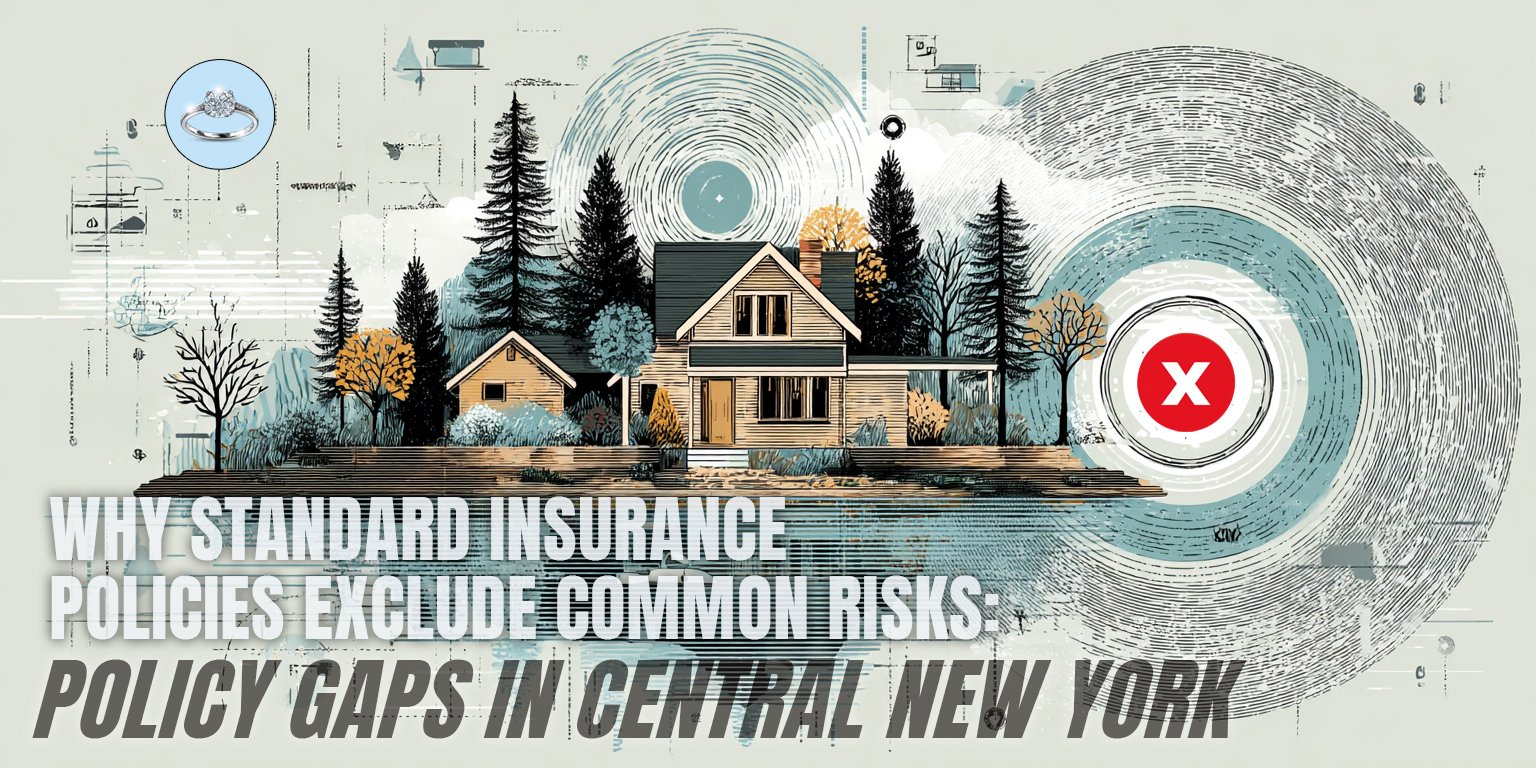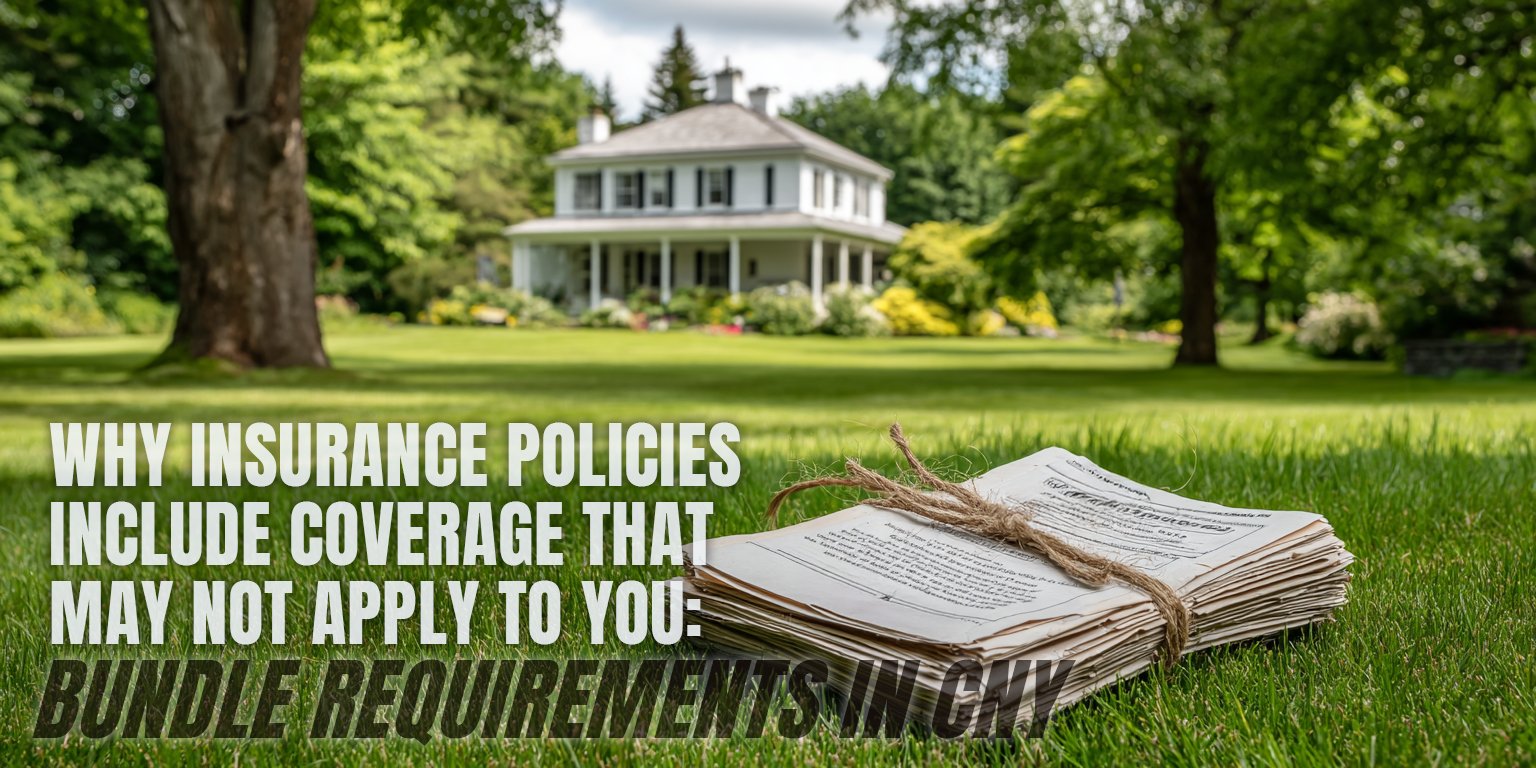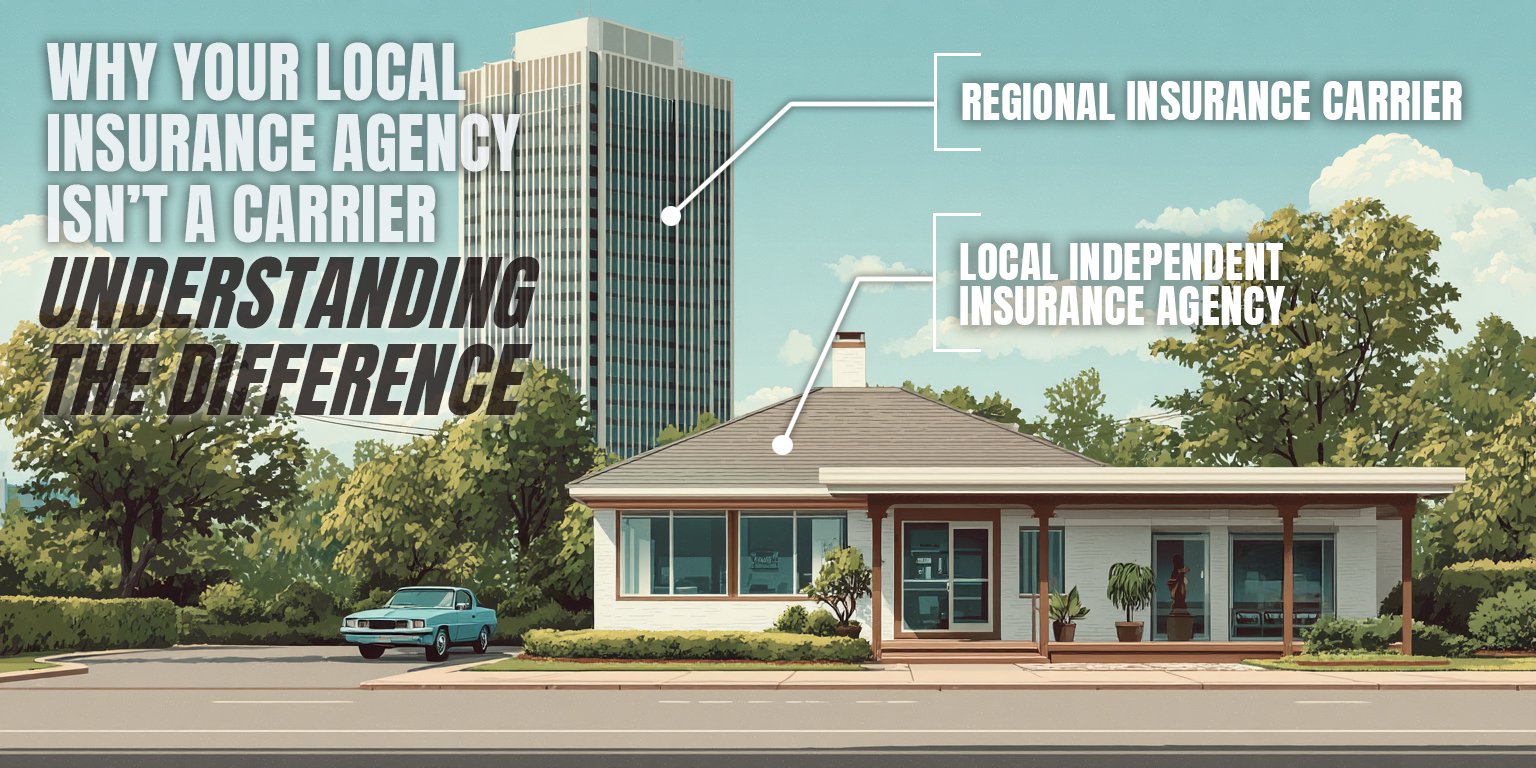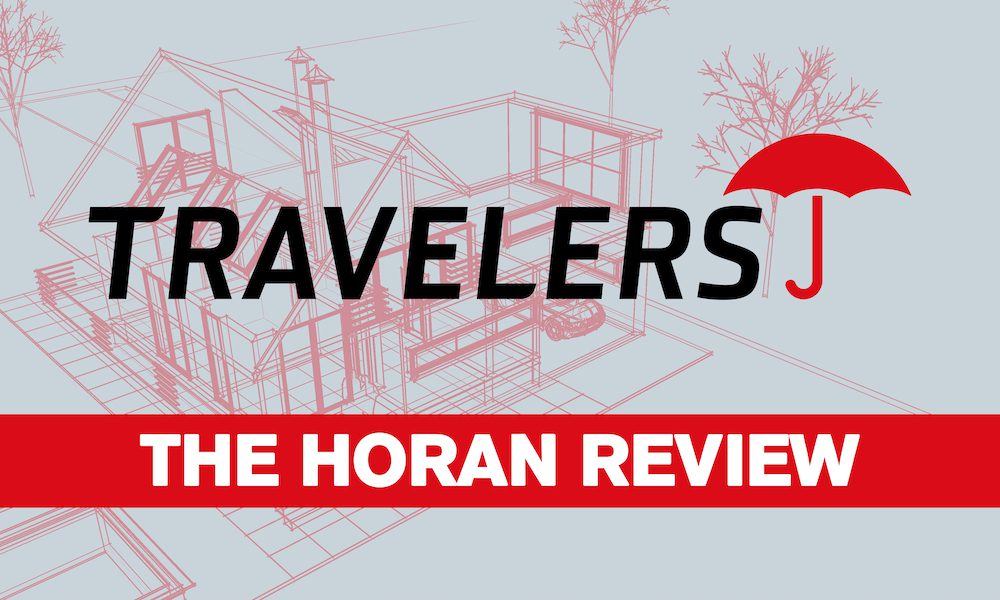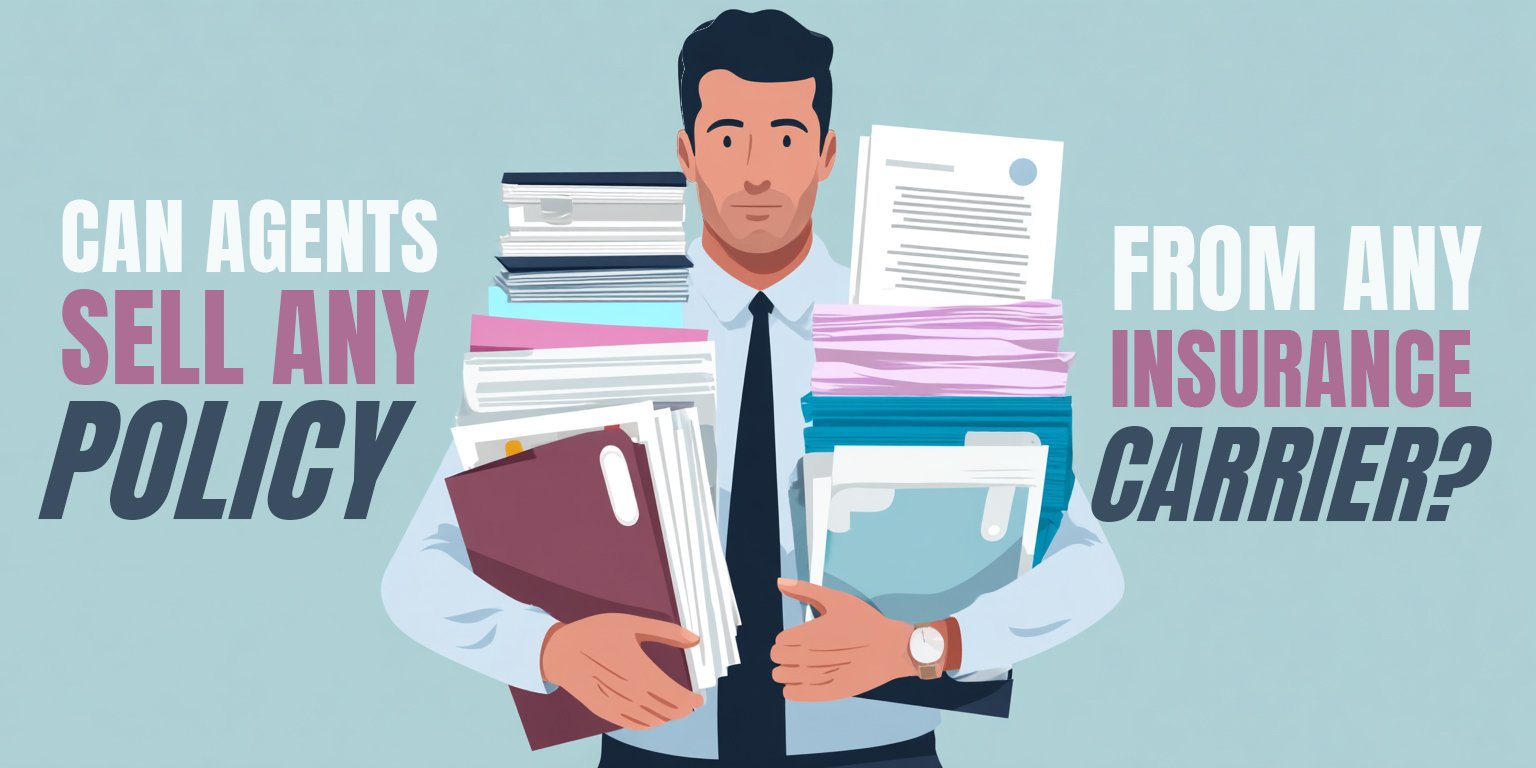Understanding Your Insurance Agency's Role in the Claims Process
November 19th, 2025
3 min read

A pipe burst in your basement. A vehicle struck your storefront. A customer slipped on your property. The claim is filed, and now you're waiting. Days pass. The adjuster's valuation comes back lower than expected, or certain damages aren't covered. You call your insurance agency—frustrated, confused, and looking for answers about decisions they didn't make.
At the Horan insurance agency, we work with Central New York property and business owners who face this situation regularly. As an independent agency representing multiple carriers, we can help you understand how the claims process works and clarify where your agency fits into that process.
This article explains the insurance claims lifecycle, distinguishes between your agency's role and your carrier's responsibilities, and shows you what to expect when filing claims in Central New York.
The Claims Process Works the Same Way Regardless of Where You Purchased Coverage
Whether you bought your policy through a local independent agency, a direct carrier like Geico, or a national chain, the claims process follows the same basic structure. The person who sold you the policy is not the person who handles your claim.
Direct carriers separate their sales and claims departments entirely. The representative who quoted your policy over an 800 number will not be involved in your claim. Independent agencies function similarly—we help you secure coverage, but the carrier's claims department makes all coverage decisions.
This separation exists across the entire insurance industry. Your agency can provide information, file the claim on your behalf, and maintain communication throughout the process. The carrier's adjuster determines coverage, evaluates damages, and issues payment.
For more detail about the fundamental differences between insurance agencies and carriers beyond just the claims process, read our article: Why Your Local Insurance Agency Isn't an Insurance Carrier: Understanding the Difference.
Your Agency Acts as a Guide, Not a Decision Maker
When you file a claim through your agency, we gather the necessary information and submit it to your carrier. We can provide you with your claim number, adjuster contact information, and initial guidance about what to expect. From that point forward, the adjuster takes the lead.
Your adjuster visits the scene, evaluates the damage, reviews your policy language, and determines what coverage applies. They calculate repair or replacement costs based on their assessment. They identify any policy exclusions or limitations that affect your claim.
Your agency monitors the claim's progress through scheduled follow-ups—typically checking in during the first few days to confirm the carrier contacted you, then following up every 10 to 15 days. These check-ins help us stay informed about your claim's status and identify any legitimate issues that require attention.
We cannot influence coverage decisions, adjust valuations, or override policy language. Those determinations belong to the carrier's claims department. This separation ensures coverage decisions come from trained adjusters who examine the damage firsthand, review the complete policy language, and apply consistent standards across all claims.
Coverage Decisions Happen Between You and Your Adjuster
The adjuster bases coverage decisions on your policy language and their on-site assessment. They examine the damage firsthand, review your policy's terms and conditions, and apply those terms to your specific situation.
Sometimes their findings differ from your initial understanding. They might discover pre-existing damage through inspection or satellite imagery. They might identify exclusions in your policy language that limit coverage for certain perils. They might calculate depreciation that reduces your settlement.
Depreciation calculations and valuation disputes represent common claim challenges. To learn more about how these situations develop and your options for resolution, see: CNY Home Insurance Claims: When Material Depreciation Becomes a Dispute.
If you disagree with the adjuster's findings, you address those concerns directly with the carrier's claims department. Your agency lacks the authority to modify coverage determinations or adjust settlement amounts.
This structure helps protect all parties from conflicts of interest and maintains consistent claim handling standards across the insurance industry.
Why Your Agency Maintains Communication Throughout the Process
Our follow-up schedule serves a specific purpose. We want to know if legitimate issues arise—if your adjuster becomes unresponsive, if the claim stalls without explanation, or if you need clarification about the process. These situations require attention, and we can help facilitate communication with the carrier.
This ongoing communication prevents situations where months pass without contact, leaving everyone in the dark when problems develop. Regular check-ins keep us informed about your claim's progress without inserting us into coverage decisions that belong to the carrier.
The goal is staying connected to your claim's status while respecting the boundaries between agency responsibilities and carrier determinations.
Understanding These Roles Reduces Frustration and Sets Realistic Expectations
When you understand who makes which decisions during the claims process, you direct your questions to the right people and avoid frustration with parties who cannot change outcomes.
Your agency helps you file claims, provides carrier contact information, and monitors progress. Your carrier's adjuster evaluates damage, determines coverage, and issues payment.
This division of responsibilities exists to ensure trained claims professionals make coverage determinations based on firsthand damage assessment and detailed policy review. It maintains consistent claim handling standards and helps protect all parties from conflicts of interest.
Central New York property and business owners who understand this structure navigate the claims process with clearer expectations about who handles each aspect of their claim. They know when to contact their agency for process guidance and when to address coverage questions directly with their adjuster.
Click the Get a Quote button below to discuss your current coverage and ask questions about how the claims process works with your specific policies. We can review your policy details and help you understand what to expect if you need to file a claim.
Daniel is an accomplished content creator. He has been working in publishing for almost two decades. Horan Companies hired Daniel as its content manager in November 2022. The agency entrusted its messaging to him. Since then, Daniel has written insurance articles, service pages, PDF guides, and more. All in an effort to educate CNY readers. He's helping them understand the world of insurance so they can make informed decisions.
Topics:


